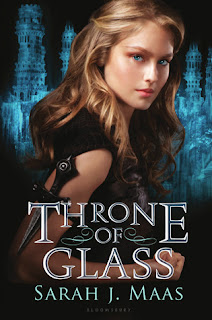William Shakespeare is well known for
his dramatic plays, Much Ado About
Nothing being no exception.
Set in the sixteenth century, this drama was first performed in 1612, with a
film adaptation released in 1993 – and then another in 2012. With a recurring theme of social
grace, deception, and public shaming, this play explores the idea of blind
romance, and how easily we can be deceived.
Originally written as a drama, Kenneth Branagh, (producer, director, and
leading actor) transforms this story into a comedy – minimizing the darker
elements. When looking at these two medias
together, it is easy to see where Branagh got his inspirations from, and where
he introduced his own ideas. Whereas
Shakespeare relied mainly on his language for effect, his sensuality performed
verbally, Kenneth Branagh made his more visual.
The
casting was very strong in this film, including Keeanu Reeves, because even when he was in an
excited crowd, he managed to bring the presence of an isolated menace that you
would want to stay away from. In
this play, Don John is the bitter step-brother that recently made up with his
brother, Don Pedro about a prior conflict. With
all that goes on in Kenneth Branagh’s version, the antagonist Don John is swept
under the rug slightly – leaving him to be a very one-dimensional character.
Another
positive comparison between the play and 1993-film adaptation is the
relationship between Benedick and Beatrice. There
is much banter between these two characters, and the film was able to capture
all of the unsaid emotions. From
their first scene the audience could feel the tension between them, and knew
that they were only trying to fight these emotions from themselves. This was a very entertaining
relationship to watch develop, and added more to the comedy instead of the
drama. Emma Thompson, who plays Beatrice, spent nearly six years married to
Kenneth Branagh before separating in 1995.
This relationship helps to explain the easy chemistry that these two had on-screen.
I
believe that Act Two was the strongest in this play, both in word and
on-screen, and was very well adapted, not straying far from the original script. This is an important scene because it
begins the development of many important relationships. However, what the play does not tell
you from reading is that the masks they are wearing are very symbolic. Originally seen to be meant as nothing
more than a gathering among everything, there is a lot of character development
and plot set up – leading to the climax. These masks showed characters for what they
really were, even if they didn’t yet know it, and thus added much to the
overall film.
Act
four was a very engaging act, well done in both the play and film. This is the scene in which we find the
most character development, especially in Claudio. This character was much more developed
in the film compared to the play, as he was less arrogant and naïve, and
instead more sympathetic.
After all of the accusations against Hero, he is evidently hurt, and expresses
this through emotional and physical outburst.
This wedding scene was a very accurately depicted dramatic event, that can be
felt both in words from the script and on-screen. This is the most positive comparison
between the play and film, and also begins the conflict and climax of this play.
From
the very beginning, there were differences between the original play and 1993
film adaptation. In
the film, it opens with a voice-over monologue from Beatrice, something not
seen in act one of the play. I
found this to be a good introduction to the film because it is calmly
captivating, warning women that all men are deceivers and cheaters –
foreshadowing the later conflict.
This scene also shows the closeness of the town, having them all gathered on
the lawn enjoying the weather, and Beatrice entertaining them.
The
character of Dogberry was portrayed differently in these two medias; in the
original play he is slow-witted and tries to come off as differently than he is. In the film, he has the personality of
being “loony” between pretending to ride in on a horse, and other antics. This silly way of acting takes away
from the real humour that stems from Dogberry getting his words confused. I personally preferred scene three in
the play, as it seemed more reasonable and put together, instead of leaving me
confused like the movie did.
Overall,
I was not disappointed with either the play or film, and believe it to be one
of the lightest Shakespeare plays I have read. Although there were some differences
when comparing the two, they were both very enjoyable experiences. Kenneth Branagh does a fine job at
bringing these older stories to live in a relatively modern way, without
straying far from the original meanings. I
look forward to watching more of Branagh’s adaptations, and hope they are as
good as Much Ado About Nothing.







